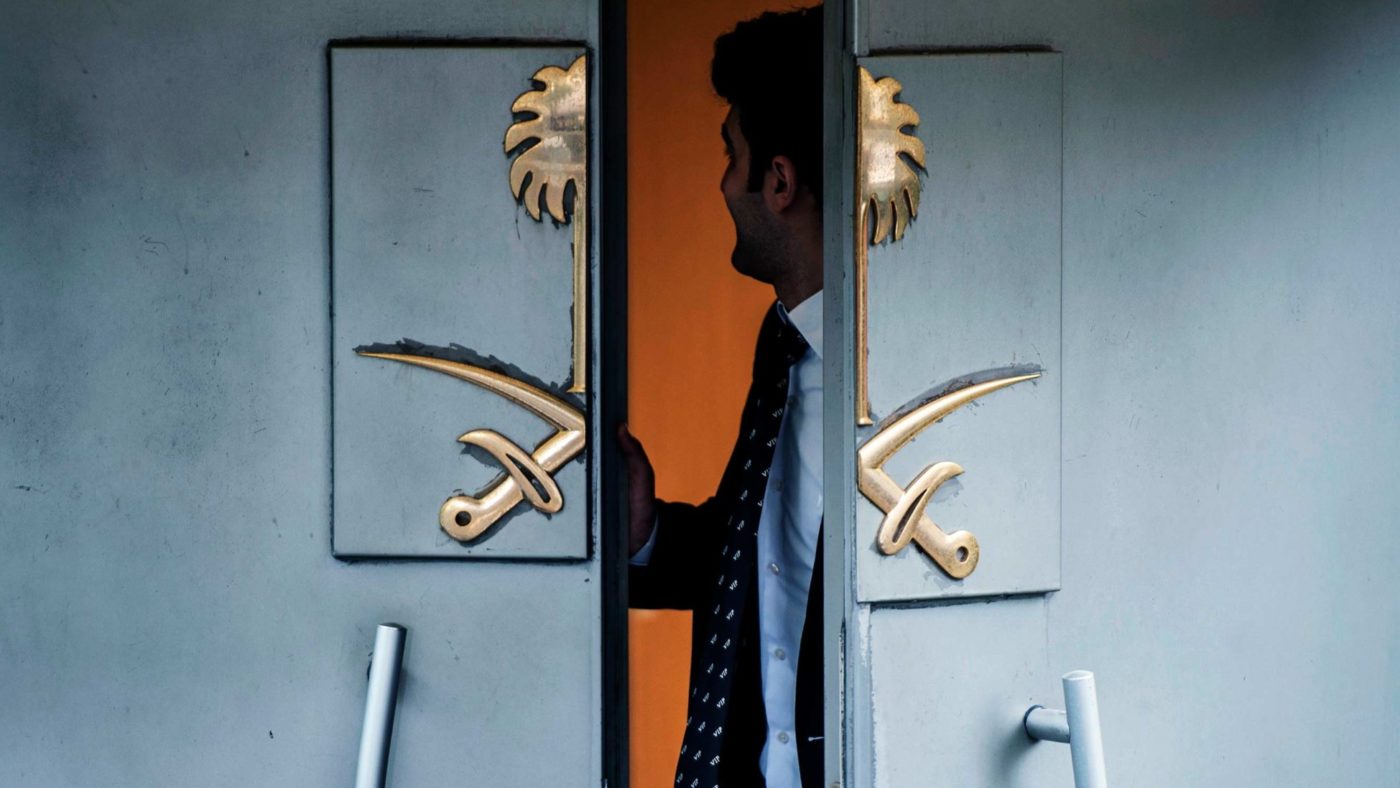The brutal murder of Jamal Khashoggi has already become a cause célèbre whose consequences will reverberate for years to come, and not just for Saudi Arabia.
Imagine if it was the Kremlin and not Riyadh. The attempted murder of the Skripals in Salisbury was just as brutal in the methods used. The immediate reaction from Moscow was similar: whatever happened to the Skripals was nothing to do with them.
Then the evidence built up, in both cases, and it became clear that the denials were unsustainable. In the case of the Skripals the intended assassins were found to be part of the GRU, Russian military intelligence. Indeed one of them was a Hero of the Russian Federation, personally decorated by President Putin. In the Khashoggi case, the perpetrators have not just been identified as Saudi but several of them are known to be close associates of the Crown Prince, Mohammed bin Salman.
There the similarities end. Despite the overwhelming evidence, the Kremlin has battened down the hatches. Their denials today are the same as they were some weeks ago.
The Saudis, however, were forced to admit that Khashoggi had died in the Saudi consulate in Istanbul, though they claimed that that his death was unintended and the consequence of a bungled interrogation. Days later the Saudi Foreign Minister admitted that he had been murdered. Now it is acknowledged that he was not only murdered but that the crime was premeditated.
We can assume that these concessions were not the result of guilty consciences. The Saudi authorities appear to pay as little attention to the ethics of their behaviour as the Kremlin.
The difference, of course, is explained by the respective strengths and weaknesses of the two authoritarian regimes. Neither is under significant pressure from their own citizens. But the Saudis, unlike the Russians, have been forced to bend before the onslaught of criticisms from the international community. The Saudis need their allies and, in particular, the continuing support of Washington.
It is not just the United States and other Western countries that have been unrelenting in their pressure but, also, Turkey, where the murder took place.
Erdogan may have been genuinely shocked but he is hardly a paragon of human rights himself, having been responsible for the vicious persecution of his own political opponents.
The reaction of the Turkish President is explained, to a significant degree, by the rivalry between the Turks and the Saudis for leadership of the Sunni Islamic world.
During the Ottoman Empire the Turks, whose Sultan was designated the Caliph, had that role. The Caliphate disappeared after 1918 and the Saudi King now describes himself as the Custodian of the two Holy Mosques in Mecca and Medina.
Clearly, Erdogan believes that Saudi legitimacy and authority in the Muslim world will have been damaged by this outrage. That suits him and he will use it for all it is worth.
But what will the consequences of the Khashoggi affair be for the Saudi monarchy, and for the Crown Prince in particular?
The Saudis are desperate to protect the Crown Prince from being put in the dock. So far, they are succeeding. But this is not because anyone seriously doubts that the Crown Prince must have had some advance knowledge that some of his closest colleagues and advisors were planning what is now admitted to have been the murder of a political opponent.
It cannot yet be assumed that his future as Crown Prince, and as Saudi Arabia’s next King, is secure.
He was appointed Deputy Crown Prince by his father, King Salman. Subsequently his predecessor was sacked and he was promoted to be Crown Prince. There is no constitutional barrier that prevents the King appointing the third Crown Prince in his short reign.
He will be reluctant to do so. Although there is no shortage of Saudi princes, it would be a massive humiliation for the King and for the dynasty if the Crown Prince had to be removed for perceived complicity in murder.
I suspect the King is waiting to see whether the White House softens its barrage of criticism. It may do so. It is vintage Trump for the President to express outrage and then, having done so, to accept unconvincing new denials or explanations from those he has been excoriating. He has done it with Putin. He has done it with Kim Jong Un.
But the harsh reality for the Saudis is that the Crown Prince is damaged property whether he loses his job or not. Never glad confident morning again.
In some ways it will be sad both for Saudi Arabia and for the Middle East if the Saudis lose their first leader who has spoken the language of reform, who has called for a more tolerant and pluralist form of Islam and who appealed to younger Saudis as someone who could understand their aspirations.
But the Crown Prince has turned out to be like other autocrats in history. He has shown himself to be a ruler able and willing to introduce genuine reform. But, at the same time he has been harsh, cruel and uncompromising in his exercise of power.
What we have seen in the Khashoggi affair is the truth of Lord Acton’s famous dictum: power corrupts and absolute power corrupts absolutely.


